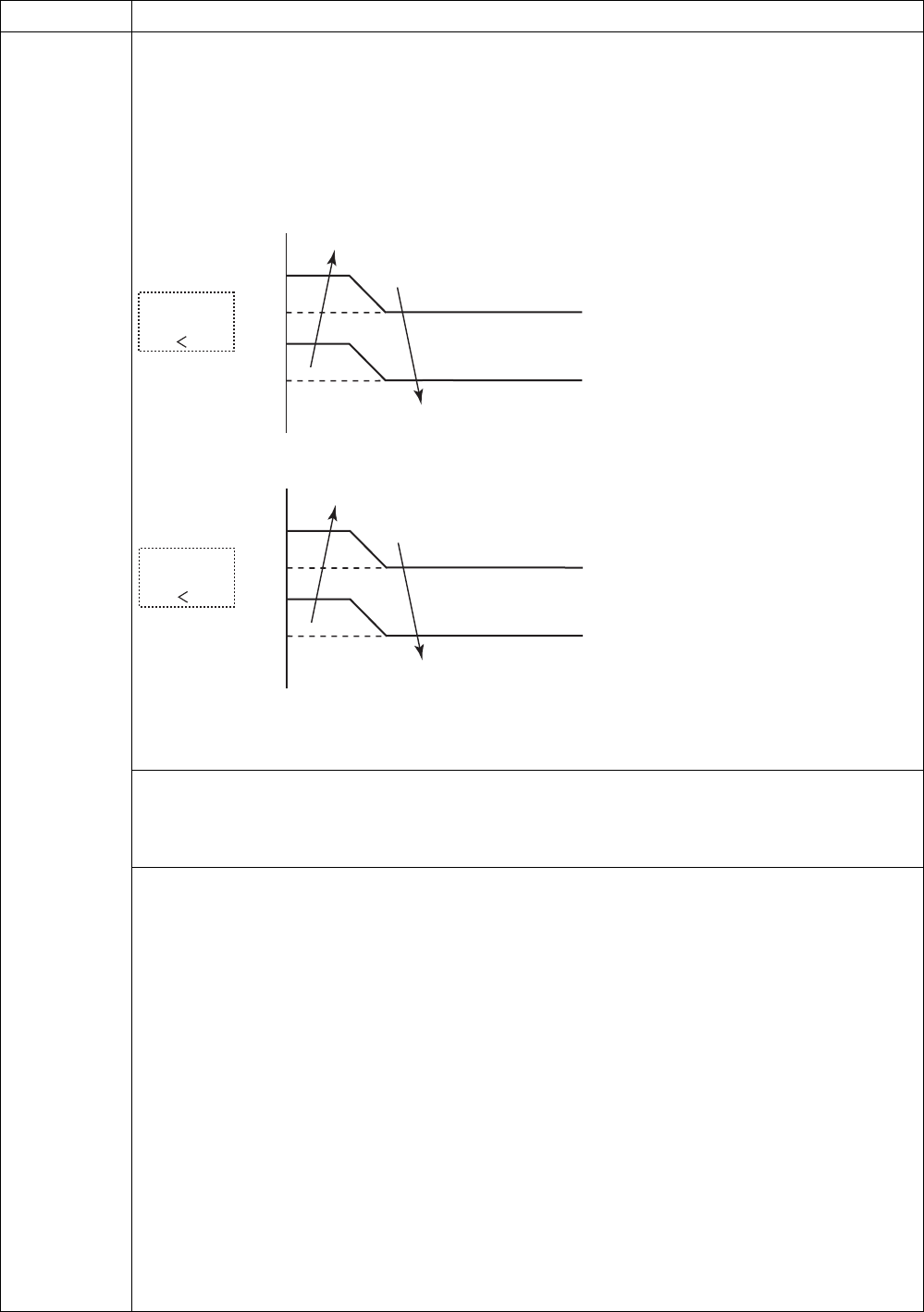
62
Toshiba
8-4.
Outdoor unit
control
7)Winding heating control
1)This control energizes the inactive compressor instead of the case heater to warm the compressor. The purpose is
to prevent the refrigerant from staying inside the compressor.
2)After the unit is installed, failure to perform energization for the given time period may cause the compressor to fail.
Also, when starting an operation long after the power left off, first energize the compressor before starting the
operation in the same way as a trial run.
3) Energization is determined by the TD sensor and TO sensor. If the TO sensor fails, the TE sensor automatically takes
over the operation. Determine whether the TO sensor fails by checking the LED outside.
4)If TD is 30°C or higher, the energization stops.
Notes
During winding energization, energizing noise may be heard, but this is not abnormal.
8)Short circuit operation prevention control
1)In 10 minutes after the operation start, the compressor may not stop for protection. This status is not abnormal. (The
operation duration time of the compressor varies depending on a operation status.)
2)If the operation stops with the remote controller, the operation does not continue.
9)Over current protection control
1)A detection of abnormal current with the over current protection control stops the compressor.
2)Set the abnormality detection counter to 1, and restarts the compressor after 150 seconds.
3)When the stop by over current protection control counts 8 times, error code is displayed and the compressor does
not restart.
(Remote controller error code display: HO1)
Item Operation flow and applicable data, etc.
(Usual)
18
°C
15
°C
10
°C
8
°C
TO
*Energization
condition
TD 30°C
Not energized
Intermittently energized
10 mins: ON / 5 mins: OFF
Output "equal to 40W"
Continuously energized
Output "equal to 40W"
(when TO sensor fails)
20
°C
18
°C
12
°C
10
°C
TE
*Energization
condition
TD 30°C
Not energized
Intermittently energized
10 mins: ON / 5 mins: OFF
Output "equals to 40W"
Continuously energized
Output "equals to 40W"
+00A09-002_01EN_SVM_ALL_Air_to_Water.book Page 62 Monday, October 5, 2009 2:09 PM


















